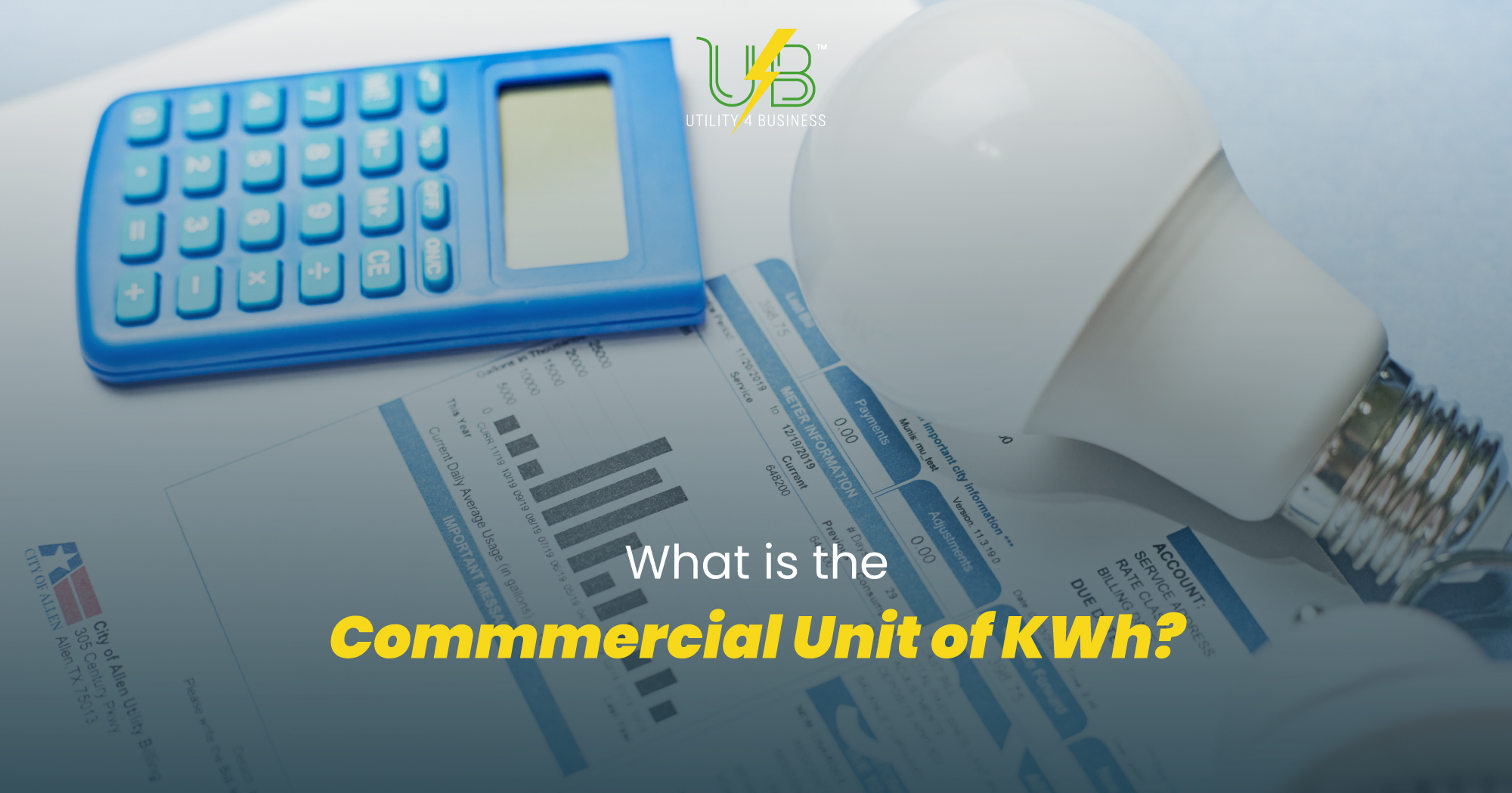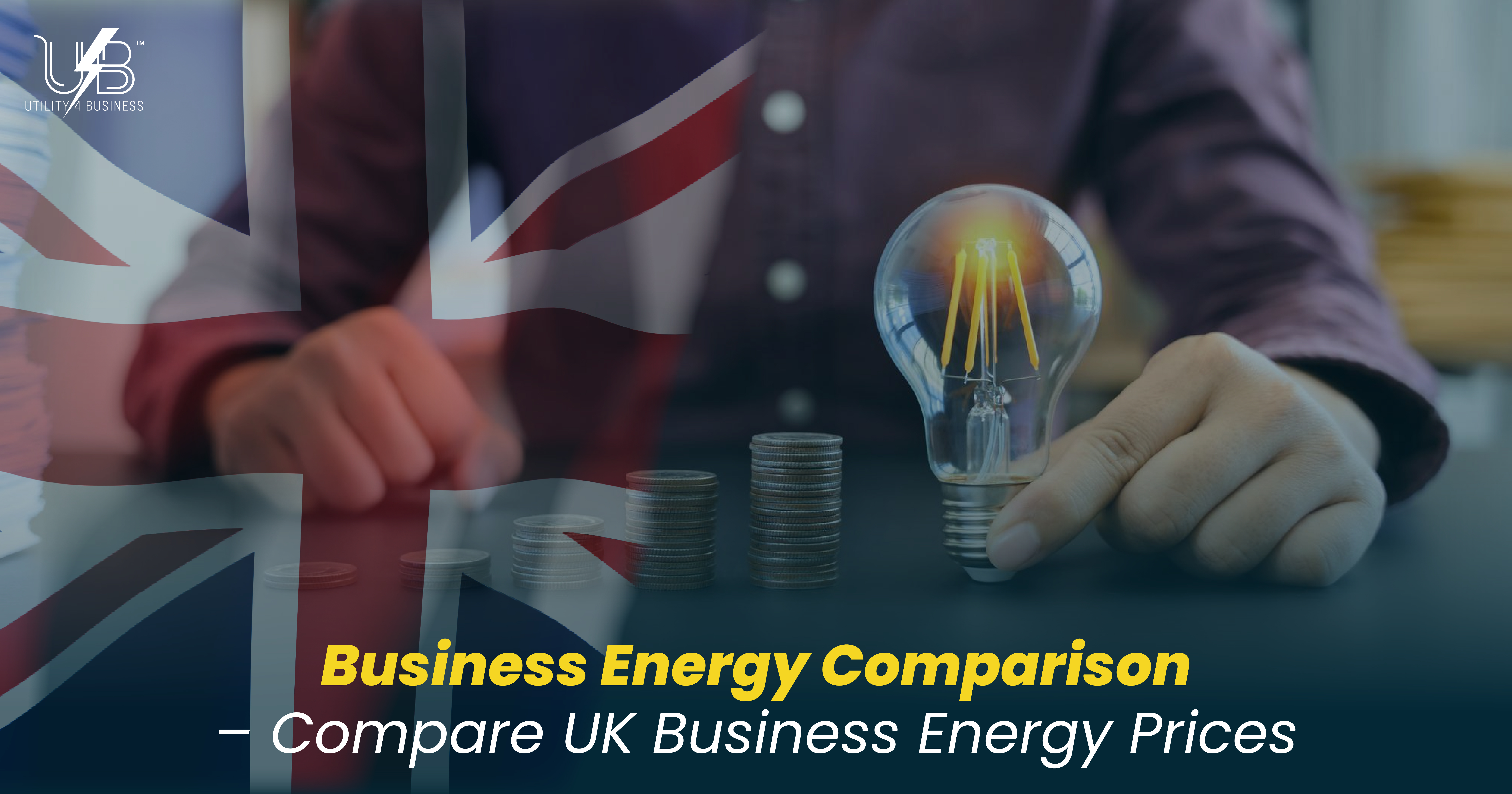What is the commercial unit of kWh?
Slash UK Business Energy Bills: 30% Savings

Have you ever paused at an energy bill wondering what a “unit” really means? In commercial contexts, that unit is the kilowatt-hour (kWh). One kWh equals 1,000 watts running for one hour, or 3.6 million joules of energy.
UK businesses pay for energy anywhere from 20p to 30p per kWh. Businesses in London, around 27.3p, North Wales, Merseyside, and Cheshire often top 30.8p.
Large companies will use somewhere between 15,000-25,000 kWh, medium businesses regularly consume up to 50,000 kWh. Since 2014, overall UK business consumption decreased by 7.3% due to efficiency improvements.
Understanding the Kilowatt-Hour (kWh)
A kilowatt-hour - often abbreviated to kWh - measures how much electrical energy you consume. Since a kilowatt equals one thousand watts, 1 kWh is 1 kilowatt of power used continuously for 1 hour.
Using the example of a heater - 1 kilowatt of energy - and if you were to operate the device on 2 hours of use, you would be consuming a total of 2 kWh of energy.
The simple calculation for using electrical energy is as follows:
Energy (kWh) = Power (kw) × time (h).
Kilowatts are a measure of power (energy usage) or the rate you are using energy. kWh is a measure which shows the total energy you consume over time.
Think of kilowatts as the speed of a car, and kWh is the distance the car travels. If you run a 2 kw appliance for 3 hours, you would have consumed 6 kWh of energy.
The Commercial Unit of kWh
Why kWh Is the Standard Commercial Unit
Utility companies worldwide bill both homes and businesses by the kilowatt-hour. It’s simple for customers to understand, and it matches how energy meters record usage. Because energy use often varies by hour and by season, billing in kWh gives a clear picture of consumption.
Comparison with Other Units
Other units like joules, watt-hours, or BTUS also measure energy. A joule is a much smaller amount, so you’d need millions of joules to equal one kWh. Watt-hours work like kWh but on a smaller scale (1 kWh = 1,000 Wh). BTUS are common in heating and cooling, but are less clear for electrical billing. kWh wins out in commercial settings because it aligns directly with meter readings and billing software.
Applications of kWh in Commercial Settings
Electricity Billing
Businesses receive monthly or quarterly bills based on the total kWh they use. Some providers offer tiered pricing or time-of-use rates. In tiered pricing, the first block of kWh costs one rate and higher usage blocks cost more. Time-of-use rates charge less for off-peak kWh and more during peak demand. Tracking kWh helps businesses avoid costly hours.
Energy Management in Businesses
Monitoring kWh use is key to managing costs. Smart meters record real-time kWh data. Energy audits analyse this data to spot waste and suggest improvements. Many companies set kWh reduction targets and track progress month by month. When teams see how many kWh they save, they stay motivated to cut waste.
Renewable Energy and kWh
Commercial solar panels and wind turbines also report output in kWh. Suppose your rooftop array generates 5,000 kWh in a month, which directly offsets your grid purchases. Calculating the payback on a renewable installation depends on the kWh produced versus the kWh you would otherwise buy. Tracking kWh output ensures you get the full financial benefit of green energy.
Factors Affecting kWh Usage in Commercial Settings
Businesses vary widely in how many kWh they use. Manufacturing plants with heavy machinery can burn through thousands of kWh daily. Office buildings need far less, focusing on lighting, computers, and HVAC systems. Seasonal shifts make a big difference too: winter heating and summer cooling drive kWh higher. Extended production hours or extra shifts also raise kWh totals. Energy-efficient appliances and better insulation can cut kWh use without slowing operations.
Global Standards and Variations
The kWh is a global standard for electricity measurement. Billing practices differ slightly by region. In the U.S., you see kWh on your meter and bill. In Europe and Asia-Pacific, it’s the same, though some countries add fixed charges per kWh or different taxes. No matter where you operate, understanding kWh gives you a clear basis for comparing suppliers and negotiating better rates.
Why Understanding kWh Matters for Businesses
Accurate tracking of kWh can save significant costs. By knowing exactly how many kilowatt-hours you use, you can spot spikes and investigate causes. Lower kWh usage also reduces your carbon footprint, supporting sustainability goals and appealing to eco-conscious clients. Many regulations now require businesses to report kWh consumption for compliance and reporting. Staying on top of kWh helps you meet those rules without last-minute stress.
Conclusion
A kilowatt-hour isn't just a figure on your electricity bill, but the main indicator for billing, energy management, and sustainability in a commercial use context. Understanding kWh gives you better control over your expenses and environmental footprint. Are you ready to stretch your kWh further?
For expert advice on lowering your energy bills and a trusted business electricity comparison, contact Utility4Business in the UK. They’ll help you find the right plan and set up kWh monitoring tools so you pay only for what you need.
Find This Article Helpful? Share It Now!
At Utility4Business, we offer top-notch customer support and business utility solutions for businesses across the UK. Consider sharing this article and helping others discover how our expertise can add value to their business success.

Read Our Latest Posts
Explore our latest blog posts and learn how Utility4Business can support your business growth with tailored utility solutions and services. Stay ahead of the curve with the latest information from industry experts and take advantage of our user-friendly comparison services to find the best business deals.


Get Connected
At Utility4Business, our team of experts can help you figure out the highest-value business utility deals that will help your business grow over time.


